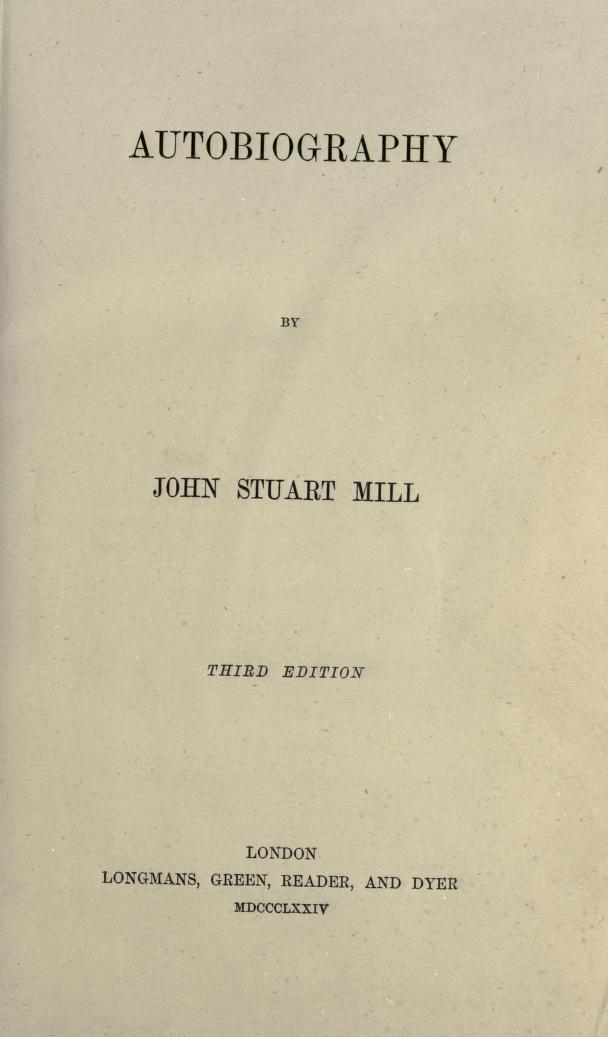
Autobiography by John Stuart Mill
References and Quotes
Quote
Used in: The Positive Method
I had been long an ardent admirer of Comte's writings before I had any communication with himself [...] I had fully agreed with him when he maintained that the mass of mankind, including even their rulers in all the practical departments of life, must, from the necessity of the case, accept most of their opinions on political and social matters, as they do on physical, from the authority of those who have bestowed more study on those subjects than they generally have it in their power to do. [...] I agreed with him that the moral and intellectual ascendancy, once exercised by priests, must in time pass into the hands of philosophers, and will naturally do so when they become sufficiently unanimous, and in other respects worthy to possess it. But when he exaggerated this line of thought into a practical system, in which philosophers were to be organized into a kind of corporate hierarchy, invested with almost the same spiritual supremacy (though without any secular power) once possessed by the Catholic Church ; when I found him relying on this spiritual authority as the only security for good government, the sole bulwark against practical oppression, and expecting that by it a system of despotism in the state and despotism in the family would be rendered innocuous and beneficial ; it is not surprising, that while as logicians we were nearly at one, as sociologists we could travel together 110 further. M. Comte lived to carry out these doctrines to their extremest consequences, by planning, in his last work, the " Systeme de Politique Positive," the completest system of spiritual and temporal despotism which ever yet emanated from a human brain, unless possibly that of Ignatius Loyola (p. 223)